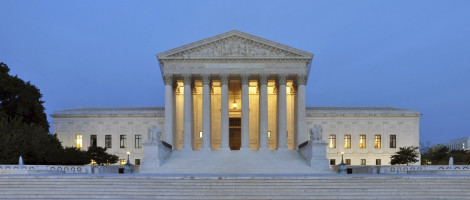What the Supreme Court’s same-sex marriage ruling means for Texas churches
by John Litzler on June 26, 2015 in Culture

On June 26, the U.S. Supreme Court ruled 5-4 that state bans on same-sex marriage violate the 14th amendment. The decision, written by Justice Kennedy, reflects a remarkable reversal in public acceptance of same-sex marriage. Same-sex marriage is now legal in Texas. Texas must also recognize the validity of marriages performed in other states. The decision has had an immediate effect as some county clerk's offices are already reporting they are open and ready to provide same-sex marriage licenses.
While some celebrate the decision as a victory for equality, many churches have expressed concern about how the legalization of same-sex marriage will challenge religious liberty. We recommend churches adopt bylaws and employment policies that clearly define its religious position regarding marriage and that clearly state how church staff and facilities are to be used in light of those religious beliefs.The Christian Life Commission has created a guideline designed to help churches think through policies and procedures that reflect church beliefs. Churches can review the guideline here.
It is important for churches to remember that while the State of Texas must provide marriage licenses to same sex couples, the protections of religious liberty in the First Amendment and the federal and state Religious Freedom Restoration Acts remain unchanged. In his majority opinion Kennedy wrote, "Many who deem same-sex marriage to be wrong reach that conclusion based on decent and honorable religious or philosophical premises, and neither they nor their beliefs are disparaged here." Kennedy also reiterated the First Amendment rights of religious organizations and persons who are opposed to same-sex marriage. Churches and ministers are not and will not be required to perform a same-sex marriage ceremony or to provide services, accommodations, facilities, goods, or privileges for a purpose related to any marriage ceremony or celebration that conflicts with the church's or individual's sincerely held religious beliefs.
The Supreme Court's ruling is limited to the right to marry and does not address what other rights may be afforded to same-sex couples. As Chief Justice Roberts points out in his dissent, "hard questions arise when people of faith exercise religion in ways that may be seen to conflict with the new right to same-sex marriage." It is now the responsibility of the federal and state legislatures to balance the rights of same-sex couples to marry with religious freedom. Issues about whether a religious school will be required to allow same-sex couples to live in married housing, for example, may depend on how each state works out the balance between state civil rights laws.
By passing the Pastor Protection Act, Texas has already demonstrated a propensity to strike the balance in favor of religious freedom. Gov. Abbott has directed state agencies to prioritize the protection of Texans' religious freedoms. The letter, posted here, is another demonstration of how Texas will continue to preserve the constitutional rights of religious organizations and individuals.
Texas Baptists is a movement of God’s people to share Christ and show love by strengthening churches and ministers, engaging culture and connecting the nations to Jesus.
The ministry of the convention is made possible by giving through the Texas Baptists Cooperative Program, Mary Hill Davis Offering® for Texas Missions, Texas Baptists Worldwide and Texas Baptist Missions Foundation. Thank you for your faithful and generous support.
Subscribe to receive stories like this one directly to your inbox.
We are more together.
Read more articles in: Culture, Christian Life Commission, Church Law
More from John Litzler
- Developing an emergency operations plan for your church
- Governor Abbott announces end of mask mandate and other COVID-19 policies
- Churches Weigh Options as Important Nov. 16 Deadline in Boy Scouts Bankruptcy Approaches
- Governor Abbott issues facemask order among other changes
- Paycheck Protection Program Flexibility Act eases loan forgiveness restrictions